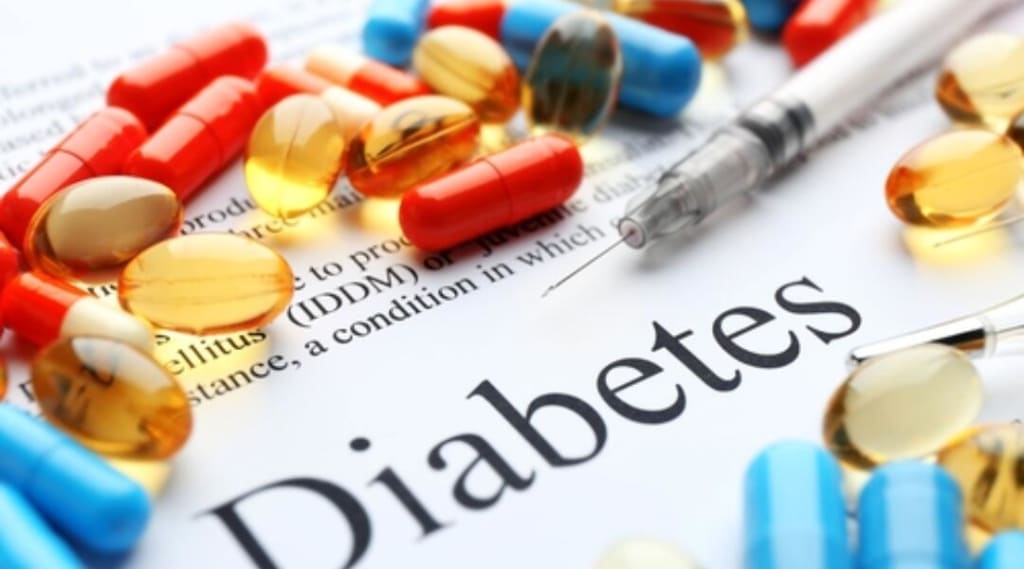5 Dangerous Effects of Diabetes on Your Body
All diabetes problems arise due to unstable blood plasma sugar levels.

The increased glucose content contributes to a change in the properties of blood, disrupts the functions of the brain, cardiovascular system, affects the kidneys, and nerve cells. The catalyst for complications is most often stress, as well as infections, and viruses that can inhibit the immune system. Against their background, one or several complications may appear at once. Below is a list of pathologies that threaten patients with uncompensated diabetes?
1. Ketoacidosis
Decompensation of diabetes often leads to ketoacidosis. This is an acute breakdown of metabolic regulation mechanisms, characterized by an increase in the glucose level and ketone bodies. Its symptoms include excessive thirst, increased urination, dry skin, the smell of acetone from the mouth, abdominal pain, headaches, lethargy, irritability, and drowsiness.
The basis of treatment is insulin therapy, rehydration measures and correction of pathological changes in electrolyte metabolism. With this condition, you must immediately consult a doctor since, without proper treatment, ketoacidosis can lead to death.
2. Hypoglycemia
This condition, caused by very low blood sugar, is often associated with the treatment of diabetes itself. The main symptoms are malaise, fatigue, pale skin, and excessive sweating. Treatment should be as quick as possible in order to return the blood sugar level to the normal and involves the use of foods and drinks with high sugar content.
It is important to prevent the development of such a state. Therefore, it is necessary to consult a doctor to correct the situation and select prophylaxis. A sharp drop in sugar can lead to hypoglycemic coma and even death.
3. Vision Disorders
A high concentration of blood sugar increases the likelihood of eye diseases. This is due to damage of small vessels which is called microangiopathy. Diabetic retinopathy is a vascular complication of diabetes. Such a pathology leads to irreversible blindness. It is clear that in such a situation it is better to prevent than to try to treat the disease.
To prevent blindness it is necessary to constantly monitor your blood sugar level, monitor the level of cholesterol so that blood vessels do not break down even more, and maintain normal blood pressure.
4. Diabetic Foot
Diabetic foot syndrome is damage to the skin, large and small vessels, nerves, bones, and muscles of the foot. It is caused by the toxic effect of high blood sugar on large and small vessels, nervous, musculoskeletal tissue. First of all, it manifests itself in pains in the lower extremities, numbness, burning, cooling of the feet, and paresthesia (goosebumps, tingling).
Diabetes patients need to be especially careful in the presence of ingrown nails, darkening of the nails, fungal lesions of the nail plates, corns, and cracks in the heels. For treatment, you should contact an experienced podiatrist, who will perform the necessary manipulations taking into account the main diagnosis. Diabetic foot prophylaxis is based on the treatment of diabetes as the underlying disease.
5. Circulatory System Damage
Diabetes increases the risk of high blood pressure, which is an additional stress for your heart. High blood glucose levels contribute to the development of fatty deposits in blood vessel walls. This can restrict blood flow and increase the risk of atherosclerosis or hardening of the blood vessels.
According to the National Institute of Diabetes and Digestive and Kidney Diseases, diabetes doubles your risk of heart disease and stroke. In addition, to properly control blood glucose, good eating habits and regular exercise can help lower the risk of high blood pressure and high cholesterol levels.
Lack of blood flow can eventually affect your hands and feet by causing pain while you’re walking. The narrowed blood vessels in your legs and feet may also cause problems in those areas. For example, your feet may feel cold or you may be unable to feel the heat due to lack of sensation.
About the Creator
Amelia Grant
I am journalist, and blogger.






Comments
There are no comments for this story
Be the first to respond and start the conversation.